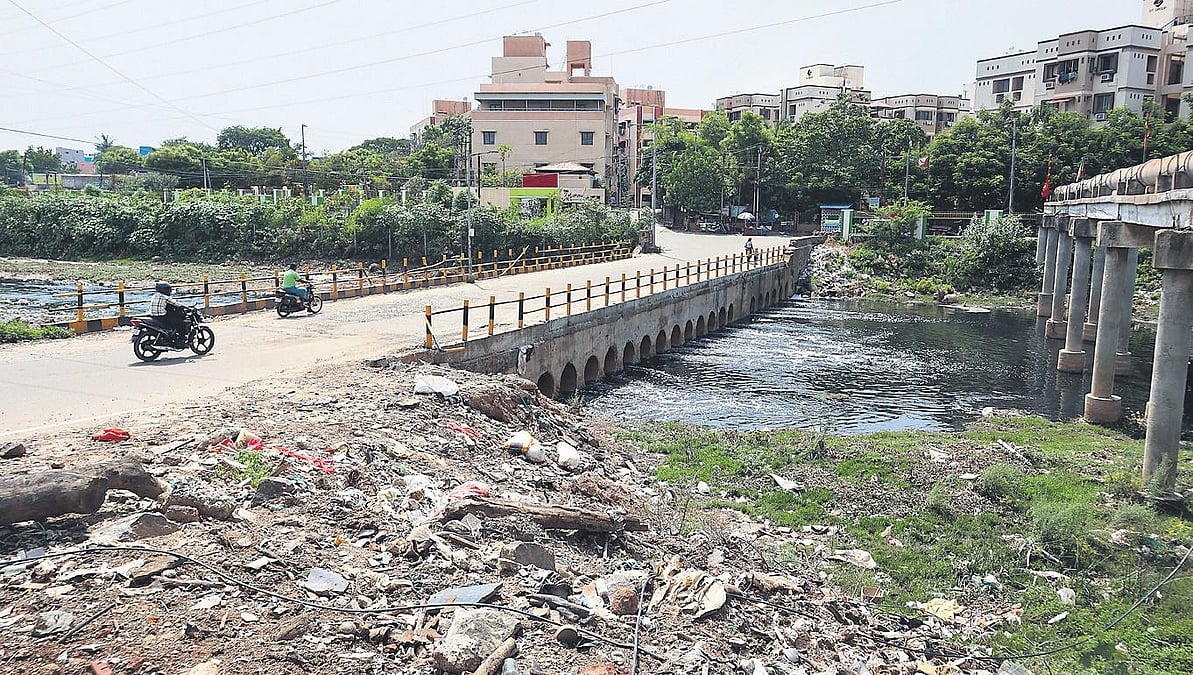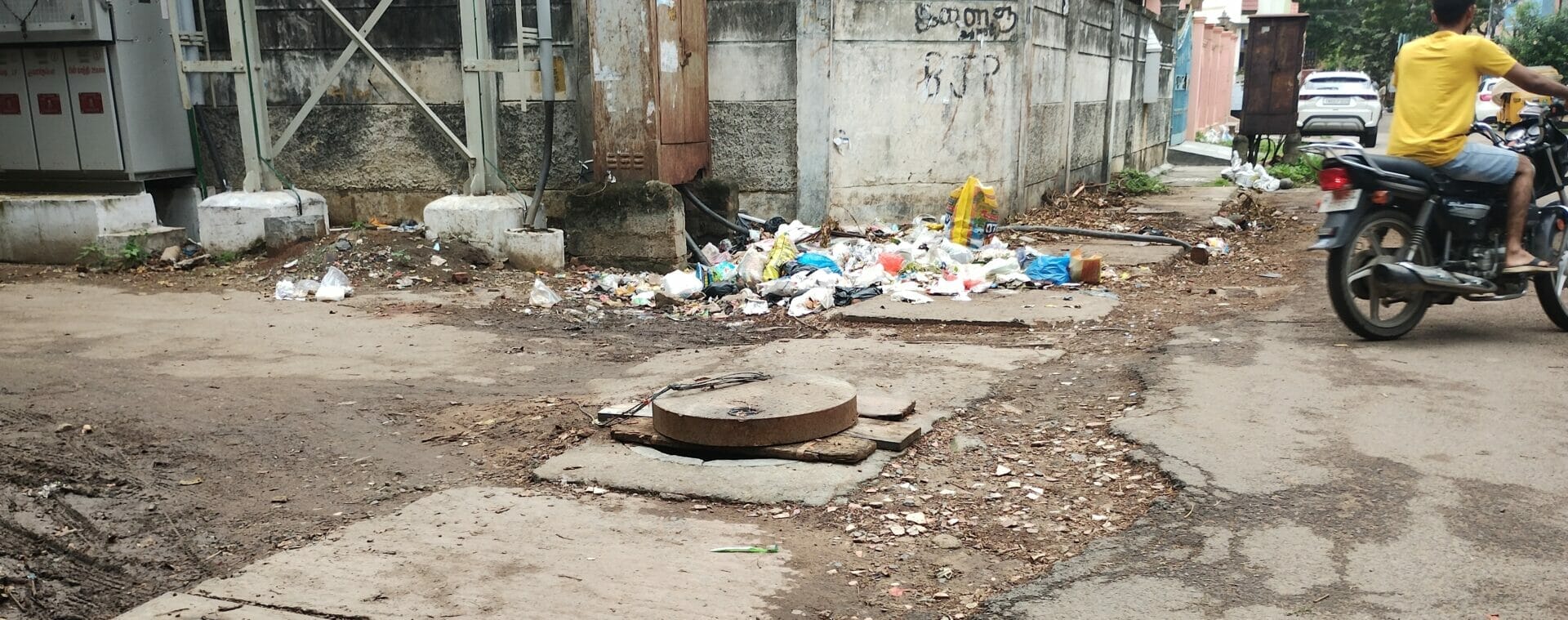At Padi Kuppam, Residents Battle Dangerous Roads and Poor Connectivity Every Day
At Padi Kuppam, a busy residential area in Chennai, residents continue to face dangerous commutes due to the absence of a proper causeway. For years, people living in Rail Nagar and nearby neighborhoods have relied on a narrow, uneven path to reach Poonamallee High Road. When it rains, this route turns into a nightmare, especially for schoolchildren and daily commuters who have no alternative but to wade through muddy water and construction debris.


Locals say that the causeway was supposed to be rebuilt months ago as part of the city’s road improvement plan, but the project remains incomplete. Workers were seen digging up the old structure and laying temporary paths, but the progress has since stalled. Heavy machinery and open pits have made the area even more unsafe for pedestrians. “We have to walk carefully, especially after dark. The ground is slippery, and there’s no lighting or safety barricade,” shared another resident.
At Padi Kuppam, Schoolchildren and Locals Struggle to Commute Safely Amid Flooded Pathways
At Padi Kuppam, schoolchildren from nearby private schools on Poonamallee High Road are among the regular users of this route. Many walk through narrow, uneven patches while dodging vehicles and construction materials. For these children, what should be a 10-minute walk home often turns into a risky journey through sludge and standing water. “It’s the easy route for us, but sometimes we get our shoes stuck in mud or slip. There’s no other shortcut,” said a student who uses the path daily.

Residents have repeatedly appealed to the Chennai Corporation to expedite the construction of a proper concrete causeway. Local civic activists have also submitted petitions, pointing out that the delay in completion not only causes inconvenience but poses serious safety risks. “Every year, the same issue repeats. They start work, leave it halfway, and the rains wash everything away again,” said Ramesh, a shop owner near the affected stretch.
At Padi Kuppam, Rain Turns the Route Into a Hazardous Stretch for Hundreds of Pedestrians
During heavy rains, several parts of Padi Kuppam become inaccessible as waterlogging isolates neighborhoods. This leaves families stranded and public transportation routes disrupted. Autorickshaw drivers and food delivery workers avoid the stretch altogether due to the poor condition of the path. In emergencies, ambulances and police vehicles also struggle to reach the interior lanes.
Authorities had earlier promised to complete the construction before the start of the northeast monsoon. However, the work remains pending, and no clear timeline has been shared. Residents claim that despite multiple inspections by civic officials, no effective steps have been taken to provide a safe and permanent solution. The lack of coordination between departments and delayed fund approvals have only added to the frustration.
At Padi Kuppam, Residents Urge Authorities for Immediate Causeway Construction
At Padi Kuppam, the absence of a proper causeway highlights a larger issue the neglect of pedestrian infrastructure in Chennai’s expanding urban zones. With the city focusing on flyovers and metro expansion, smaller neighborhoods often get overlooked, leaving residents to fend for themselves.
Meanwhile, community members continue to hope for a resolution. Some have even volunteered to place wooden planks and makeshift bridges during rainy days to help others cross safely. “We can’t keep risking our lives like this. The government needs to act fast,” said a group of local residents gathered near the muddy crossing. Also Read: The DMK Raises Strong Allegations Against BJP and AIADMK Over Tamil Nadu Voter List Revision in 2026
Conclusion:
The ongoing struggle at Padi Kuppam reflects the growing concern over Chennai’s neglected civic projects. For residents, every rainfall brings renewed danger and disruption. As petitions pile up and frustrations rise, locals now await swift action from authorities to complete the causeway not as a luxury, but as a much-needed lifeline for thousands who depend on it daily.

